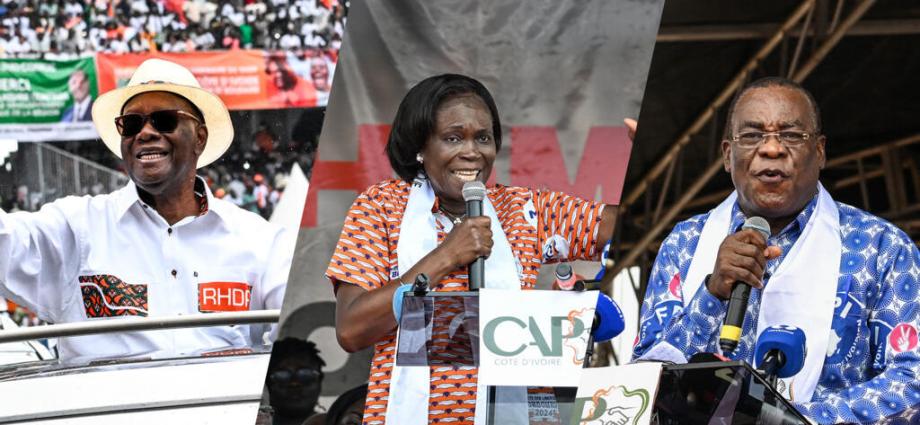“`html
Ivory Coast’s 2025 Presidential Election: Ouattara, Gbagbo’s Ex-Wife, and N’Guessan to Run as Opposition Heavyweights Barred
Key Figures Enter Race While Opposition Leaders Face Exclusion

Ivory Coast’s political landscape is heating up as President Alassane Ouattara confirmed his candidacy for the October 2025 presidential election. The incumbent, in power since 2011, will face competition from former First Lady Simone Ehivet Gbagbo and ex-Prime Minister Pascal Affi N’Guessan. However, the race has already sparked controversy with the exclusion of four major opposition figures: former President Laurent Gbagbo, former Prime Minister Guillaume Soro, opposition leader Charles Blé Goudé, and ex-banker Tidjane Thiam.
A Familiar Face Seeks Another Term
At 82, Ouattara’s decision to run again raises questions about continuity versus change in a nation still recovering from post-election violence in 2010-2011. His supporters argue stability is paramount, while critics claim his prolonged tenure stifles democratic renewal. “The president believes he’s the only one capable of maintaining economic growth,” says political analyst Jean-Luc Amani. “But many Ivorians wonder if fresh leadership might better address youth unemployment and regional disparities.”
Simone Gbagbo’s Controversial Comeback
Simone Gbagbo, wife of former President Laurent Gbagbo, brings polarizing history to the race. Once sentenced to 20 years (later pardoned) for her role in the 2010-2011 crisis, her candidacy under the African Peoples’ Party–Côte d’Ivoire (PPA-CI) signals a defiant return. “She commands loyalty in the south but remains toxic to many who blame her for past violence,” notes Abidjan-based journalist Fatou Coulibaly.
Opposition Cries Foul Over Exclusions
The electoral commission’s rejection of Laurent Gbagbo, Soro, Thiam, and Blé Goudé—all deemed ineligible due to legal convictions or residency issues—has drawn accusations of bias. Gbagbo’s African People’s Party (PPA) called it “a calculated move to sideline challengers,” while Thiam’s camp cited “procedural irregularities.” International observers urge transparency, recalling how disputed exclusions fueled past conflicts.
What’s at Stake?
With cocoa prices fluctuating and infrastructure projects underway, the election could pivot on:
- Economic promises: Will Ouattara’s infrastructure achievements outweigh demands for wealth redistribution?
- Security concerns: Can candidates reassure voters after recent jihadist threats in northern regions?
- Generational shift: 60% of Ivorians are under 25. Will they rally behind older elites or demand new faces?
Historical Echoes and Future Risks
Ivory Coast’s elections have often mirrored its fractured identity: the Muslim north versus Christian south, francophone elites against rural populations. The 2025 race risks reopening wounds if perceived as unfair. “Excluding major voices doesn’t build confidence,” warns ECOWAS envoy Diallo Mahamane. “Dialogue is essential to avoid repeating history.”
As campaigns begin, all eyes are on whether this vote can solidify peace—or reignite divisions in West Africa’s once-booming economy.
For further details, see the original report by France 24.
“`


